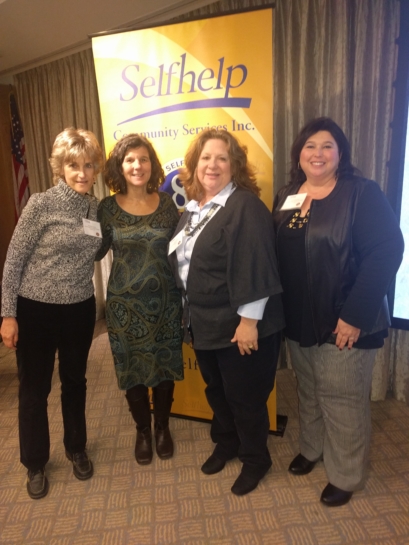When the Past is Present: Trauma-Informed Care for Holocaust Survivors Part 2
Dec 16,2016

Please take some time to hear reflections of Paula, Liz and Stacy as they share some pearls of wisdom that they learned from the conference. (For more details on the conference, kindly take a peek at our last blog post.) There will be one more story related to our time at this inspirational time in NYC in an upcoming blogpost.
“I was most impacted by the information shared during the workshop: Dehumanization and Empathy: Service Delivery Responses to Holocaust Survivors led by Irit Felsen, Clinical Psychologist. She shared the concept of “Less Human than I” and how the human brain interprets weakness and disabilities as “inhuman”. Those who are physically sick or deformed or emotionally distressed can be perceived, by the brain of caregivers, as “less than human”. She gave valuable tools to combat an automatic response. One of the most valuable tools that she shared is easily accomplished. By finding a photograph of the patient or person in live action at an earlier time in their life and blowing it up to almost life size, by displaying it predominantly in the room where a caregiver would be caring for the individual, it helps to associate the person being cared for with the person they have always been, and not as the helpless or ill person that they may be now. A caregiver automatically relates the image with the person and helps to humanize them.” ~Paula Blumenau, Outreach Coordinator
“I was impressed by the speaker who described how dehumanization occurs and helped us to see how we all lose empathy in relating those who are different from us. Elderly trauma survivors are particularly susceptible to dehumanization because we want to distance ourselves from the ravages of aging and because the disgust we feel for their trauma is put onto the victim. The speaker encouraged us to look for commonalities with others, imagine what they had been like before the illness or loss of ability so that we continue to see them as being like ourselves. In this way, we encourage empathy.” ~Liz Kadesh, Founding Executive Director of JFS Orange and Social Work Supervisor
“I learned that by making a spreadsheet calculating the total reparations a survivor has received throughout their lifetime, this amount should be excluded when determining if a person would be eligible for Medicaid. If a survivor has resources/savings either equal to that amount or less than that amount, these monies are not counted as a resource therefore allowing the person to receive Medicaid. This will prove to be a tremendous source of financial support to some Holocaust people that we serve.” ~Stacy Ocko-Lulkin, Case Manager





